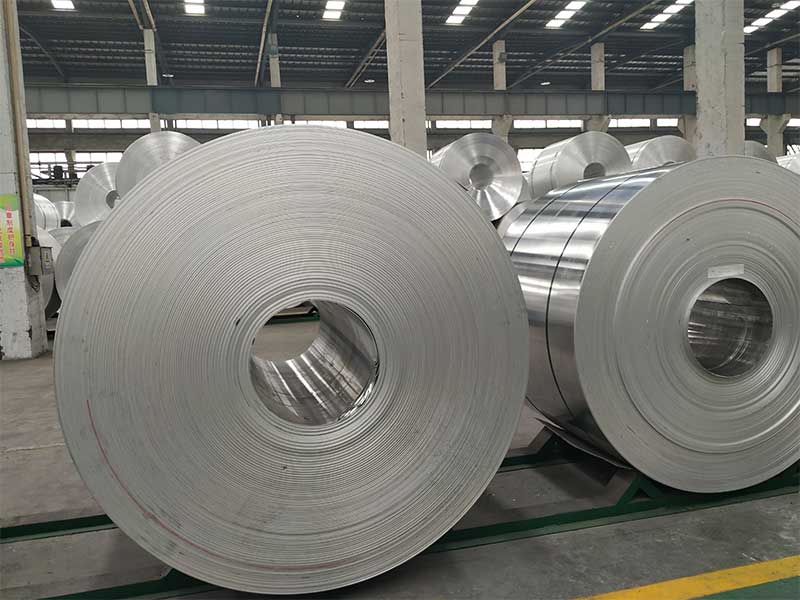In today's context of rising energy costs and greenhouse gas emissions, effective insulation of pipelines is more crucial than ever. One material rising to prominence in this arena is aluminum coil. From the oil and gas sector to HVAC systems, the nuanced application of aluminum coil for pipeline insulation lends itself to a host of benefits that enhance both functionality and sustainability.
1. The Basic Functions of Pipeline Insulation
The primary function of pipeline insulation is to maintain the temperature of the fluids traveling through the pipelines, be it hot steam or cold refrigeration. Insulation also minimizes energy loss, protecting the intricate systems designed to transport fluids across lengthy distances. By insulate efficiently, businesses manage to save significant costs associated with energy loss and inadvertent product changes during transportation.
From my perspective on the factory floor, seeing the aluminum coil destined for pipeline insulation highlights the crucial role material properties play in a seemingly simple product. We rigorously test for thickness consistency, tensile strength, and surface finish – all vital for the coil’s performance as a protective layer. A tiny flaw, an inconsistent thickness, or surface imperfections can lead to weak points in the insulation, potentially causing costly repairs or even environmental damage down the line. It's not just about meeting the customer's specifications; it's about contributing to a safe and efficient energy infrastructure. We see firsthand the impact of even minor variations in our production process – a slight temperature fluctuation during annealing can affect the coil’s formability, impacting its suitability for wrapping around complex pipeline geometries.
Beyond the technical aspects, I've observed a growing awareness of sustainability throughout our operations. The demand for aluminum coil in pipeline insulation speaks to a broader trend towards energy efficiency and reduced environmental impact. We’re increasingly involved in discussions about recycling and the use of recycled aluminum in our coils, recognizing that minimizing our environmental footprint is a factor in long-term success. The dedication to producing high-quality, long-lasting insulation, while also considering the lifecycle of the material, is something I find particularly rewarding in my role. It’s more than just making aluminum coil; it's contributing to a future where energy transportation is both efficient and environmentally responsible.
Why Aluminum Coil?
Choosing an insulating material that enhances not only thermal performance but also durability, corrosion resistance, and weight considerations is essential. Aluminum coil emerges as a superior choice for various reasons.
2. Technical Attributes
-
Thermal Conductivity: Aluminum's unique supermeldability allows for controlled conduction and insulation capabilities that meet the intricate thermal requirements of different pipelines.
-
Corrosion Resistance: By virtue of its intrinsic properties or the use of aluminum claddings, aluminum coil offers remarkable resistance against environmental stressors that can contribute to pipeline degradation over time.
-
Lightweight Quality: Deciphered from the numerical data, aluminum coil has an unbelievably low weight-to-strength ratio. For applications in large diameter pipelines or elevated structures, the reduced weight can result in lower costs and additional benefits related to transportation and installation.
3. Versatile Applications of Aluminum Coil in Insulation
The sequential applications of aluminum coil are critical across various industries:
-
Oil and Gas Industry: Given the extreme thermal exposure encountered with the transportation of fossil fuels, pipelines insulated with aluminum effectively keep heat locked in, preserving the physical and chemical integrity of the products.
-
HVAC Systems: The incorporation of aluminum coil in ventilation and refrigerant lines boosts overall energy efficiency. Its insulation ability enables the HVAC systems to operate seamlessly with optimum efficiency rates, drastically reducing energy consumption.
-
Wastewater Management: Municipal facilities are transitioning toward aluminum coil for insulated piping infrastructures that resist heat loss or gain, consequently saving costs associated with recomplicating aged systems.
4. Sustainability Factor
Going beyond its functional attributes, the environmental implications of using aluminum coil for pipeline insulation cannot be overlooked. Aluminum is a highly recyclable material, which contributes to better life cycle assessments in infrastructures utilizing pipeline insulation.
When pipelines insulated with aluminum coil finally reach the end of their functional life, they remain entirely recyclable, thus yielding valuable materials for reuse without contributing heavily to landfills.













